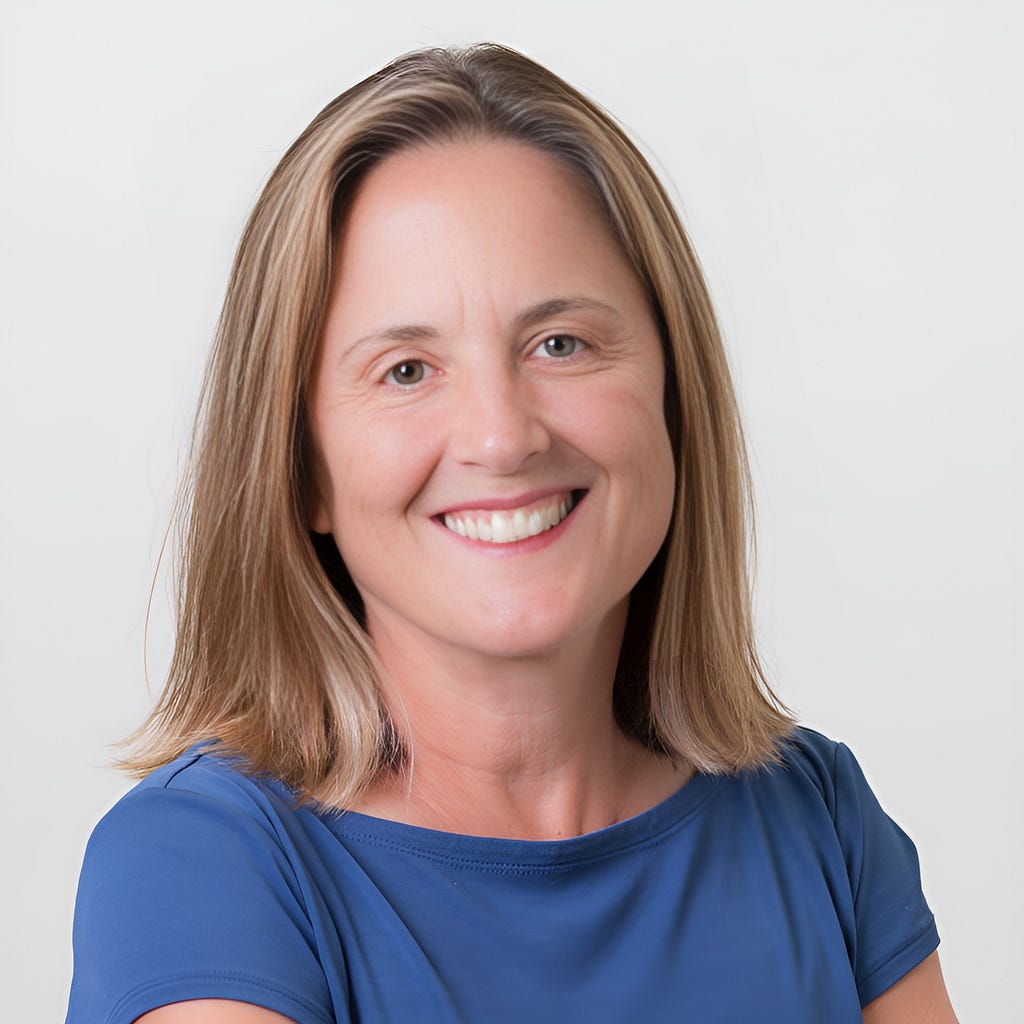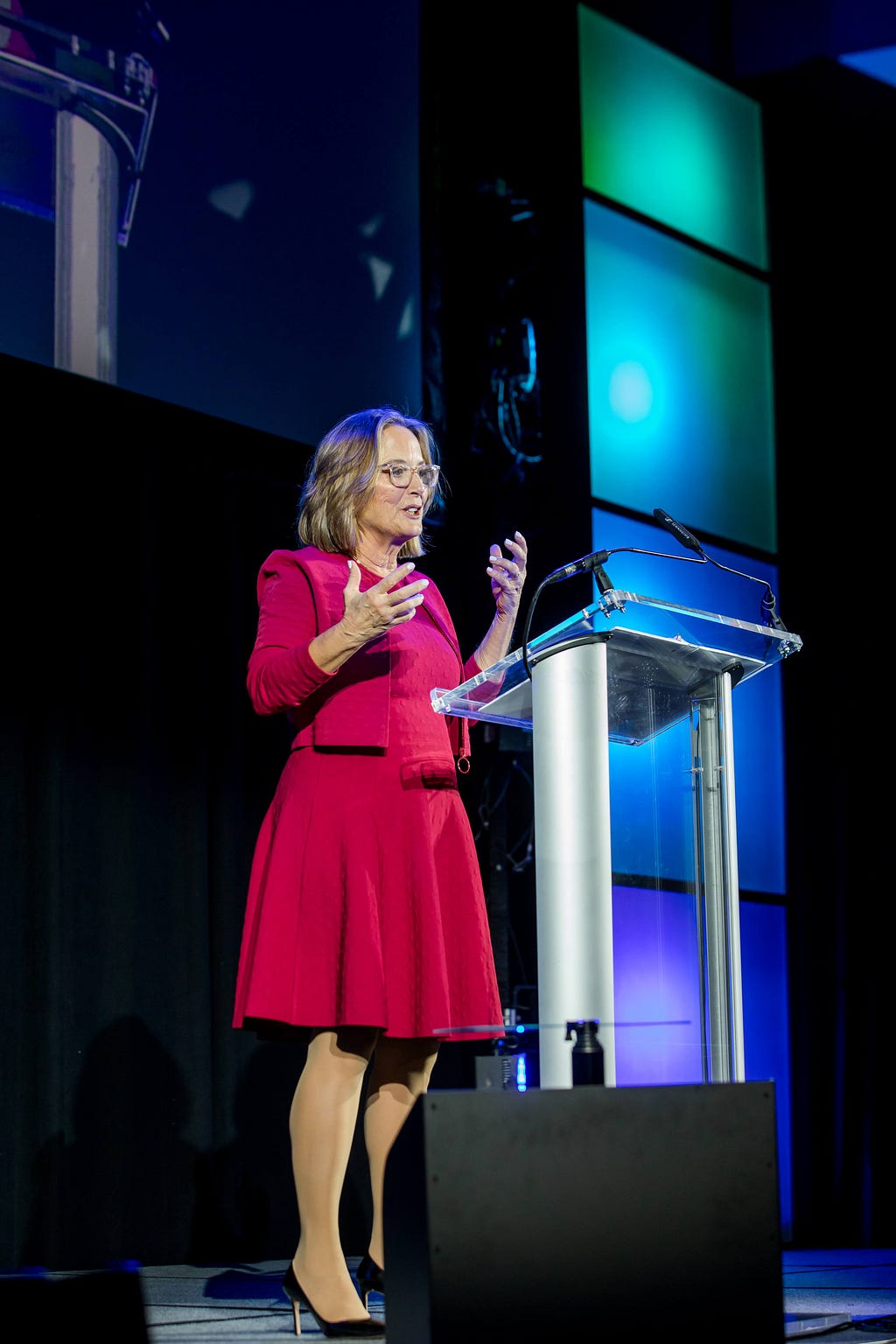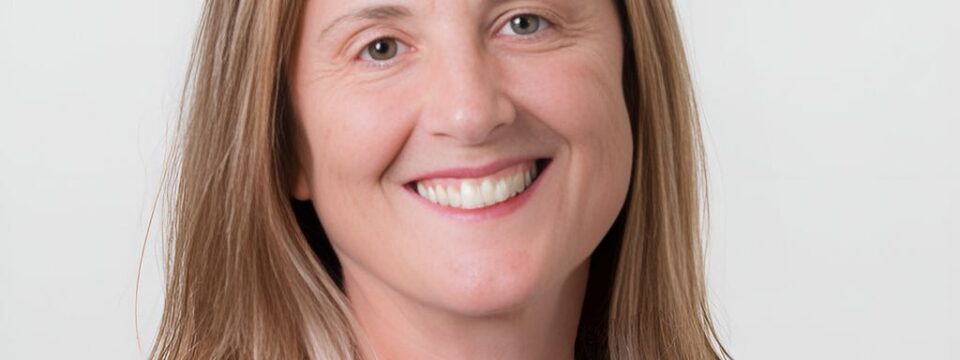Social Impact Heroes: Why & How Kate Barrand of Horizons for Homeless Children Is Helping To Change Our World

One should approach leadership at a non-profit as a marathon not a sprint.
Managing through the pandemic was nothing any of us could have prepared for as leaders. Responding to a changing landscape month to month was exhausting so you really needed to pace yourself and your organization.
As part of my series about “individuals and organizations making an important social impact”, I had the pleasure of interviewing Kate Barrand, President and CEO of Horizons for Homeless Children.
Kate Barrand is President & CEO of Horizons for Homeless Children, the only organization in Massachusetts that exclusively serves children living in the emergency assistance shelter system and their families. Kate is an experienced consultant who’s worked with C-suite and executive teams of large financial institutions, Fortune 500 companies, and nonprofit organizations to define new strategies, develop marketing programs, and realign businesses to better serve stakeholders. Previously, she was the founder and CMO of Clareon Corporation. She also led strategic planning and global strategic marketing at BankBoston. Kate has an MBA from Boston University and a B.A. in Early Childhood Development from the Eliot-Pearson Department at Tufts University.
Thank you so much for joining us in this interview series! Can you tell us a story about what brought you to this specific career path?
As a child with dyslexia, I struggled to read, but my family had the opportunity and means to address this challenge at the earliest ages. I was fortunate to be living in Washington D.C. where The Kingbury Center was founded. It is an organization established to support children with dyslexia. The tutoring I received in my earliest years set me up for a lifetime of achievement. I grew up thinking I would teach so I could be a positive force in children’s lives, and I did for a short period but the universe had different plans for me and I ended up with a long career in the private sector. At age 30, I was introduced to the work of Horizons for Homeless Children and it became my philanthropic focus. I served on the Board of Directors and then became a volunteer in the shelter system in the Horizons Playspace Program. My experience as a volunteer helped me understand the positive impact Horizons’ programs can have on children.
Eight years ago, I took on the role of CEO.
Can you share the most interesting story that happened to you since you began leading your company or organization?
I was contacted many years ago by a couple who had given to Horizons for many years, but then stopped well before my arrival. I went and met with them and began to discuss my vision for building a new space for our families with an onsite medical clinic. I was excited because I had been searching for a long time to find a hospital willing to put a clinic onsite with our early education program. Many providers had refused me but there was one which expressed great enthusiasm for the idea, but they would have to find capital to build out the space. Without my knowledge this couple went to that provider and underwrote the project while also renewing their support for Horizons. It was when I learned that you did not need to ask for a gift if people can see your vision and it matches their interests.
It has been said that our mistakes can be our greatest teachers. Can you share a story about the funniest mistake you made when you were first starting? Can you tell us what lesson you learned from that?
I make mistakes all the time, but I try to fail small. There is not a week that goes by that I don’t reflect on what I could have done better or differently, but I try to learn from it and move forward. Working in a start up environment taught me the true benefit of a test and learn approach to life and leadership. To inspire innovation, we must encourage our teams to try new ideas and learn from the experience, modify based on feedback and relaunch until we get things right.
Can you describe how you or your organization is making a significant social impact?
Horizons’ long-term focus has been on addressing the needs of Boston’s youngest citizens experiencing homelessness so that they can thrive and be successful members of society in the years to come. Ensuring these children have access to high-quality early education and care is a crucial step toward mitigating long-term developmental damage and disrupting intergenerational cycles of homelessness. One of the ways we do this is by providing children with safe spaces to play and learn while their parents can receive the guidance and support they need to get back on their feet and conquer homelessness.
Following Governor Healey’s emergency declaration aimed at addressing the state of Massachusetts’ overburdened shelter system earlier this year, there have been many calls to action to authorize work permits for new arrivals and housing families. Horizons, other state leaders, and I have been focused on the one population being left out of the conversation: under-school-age children. We were instrumental in calling for a coordinated and well-organized response to serve the needs of under-school-age children living in hotels and motels with little or no access to critical services and experiences to support their development.
To address this, Horizons has reopened more than 50 Playspaces across Massachusetts and trained over 130 new volunteers to meet the growing demand of homelessness this year — offering over 5,000 hours of play to children experiencing homelessness in Massachusetts. We have plans to do even more in the year ahead.
Can you tell us a story about a particular individual who was impacted or helped by your cause?
We believe in a 2-generation model at Horizons where children are enrolled and so are their parents. As part of our Family Partnerships Program, parents have the opportunity to work with a Horizons Family Advocate. These Advocates serve as mentors who support families as they work to establish family stability, wellbeing, education and training, employment and career, and financial independence. So many of these parents are able to take steps ahead because of the work they do while associated with Horizons. We hear this when they share their stories as spokespeople at our events or advocating when legislative opportunities arise. Their voices speak louder than ours because they’ve experienced the trauma and isolation that comes from homelessness.
Earlier this fall we invited Genae, a mom of one of our students to speak at a Horizons event and she shared her all too familiar story of how generational poverty and domestic violence can create the perfect storm for women and their vulnerable children. Whenever we can amplify stories like Genae’s it gives us all a renewed empathy for what they experience, much of which is outside their control.
Are there three things the community/society/politicians can do to help you address the root of the problem you are trying to solve?
Systemic poverty in this country needs to be addressed for family homelessness to decline materially. Currently one in eight children live in poverty in the U.S. and 38 million people cannot afford their basic needs (food, housing, heat and health.)
Family homelessness should be unacceptable in a country as rich as the United States. The fastest and most cost-effective approach to ending this problem is for families experiencing homelessness to be given a housing voucher. This is a proven fact, yet we continue to rely on other solutions or no solutions at all.
We must build more affordable housing units across this country to support low and moderate income families. These units should be well designed and well-appointed and be placed in vibrant communities and not reserved for low-income urban areas. We must push back on the “not in my backyard” activists resisting change and point to the data supporting the finding that diverse communities build stronger more resilient children.
How do you define “Leadership”? Can you explain what you mean or give an example?
At Horizons, I have employed a democratic leadership approach where I encourage broad discussion from across leadership at different levels to inform significant decisions for our workforce. This is not to say all voices have the same weight ultimately in the decision process, but it has been particularly effective in bringing diverse voices and perspectives to the table when major changes are being contemplated. Last year when deciding if we should distribute hardship stipends to our employees who were most impacted by the inflationary pressure of rising costs (gas, electricity and heat) we discussed this at length with both the Executive Team and the Operating Council at Horizons prior to making a final decision. This helped us make a more grounded and informed decision and helped us communicate the decision to do so when the time came.

What are your “5 things I wish someone told me when I first started” and why. Please share a story or example for each.
1. One should approach leadership at a non-profit as a marathon not a sprint.
Managing through the pandemic was nothing any of us could have prepared for as leaders. Responding to a changing landscape month to month was exhausting so you really needed to pace yourself and your organization.
2. Bust out of the scarcity mindset — make investments that make a difference.
When I arrived to take over as CEO at Horizons, there was a scarcity mindset around everything. The organization was doing complex manual things when technology investments were clearly needed, managers were so busy trying to save money that our staff lacked the materials needed to do their work. As soon as I was able to shift that mindset, the organization made the investments required to make us a more efficient and effective organization.
3. Fail often and fail small — test and learn.
The phrase that is a trigger for me in all situations is ‘we have always done it this way.’ I encourage teams to try new things and new approaches continually to see if there are more effective approaches to our work. If you encourage people to take small risks often, it encourages a culture of experimentation and learning.
4. Leadership is not about having the right answer but asking the right questions.
This is an area of ongoing growth for me as a leader as I am extremely outcomes oriented. It is clear to me that people learn more and remain more committed to ideas they develop on their own, therefore it is most helpful for leaders to ask questions that lead to the discovery of a solution, instead of leadership identifying the solution. This takes great patience and creativity on the part of a leader.
5. Philanthropy is not about asking for money; it is about actively listening to a donor’s priorities.
My biggest reservation in taking on the role of CEO was around fundraising as asking people for money was not in my skill set. But working alongside an experienced fundraiser, I learned it was about listening to donors with intent and then discussing where and how our mission aligns with their priorities.
You are a person of enormous influence. If you could inspire a movement that would bring the most amount of good to the most amount of people, what would that be? You never know what your idea can trigger.
We should solve family homelessness in this country. How we treat our children is a measure of the society we hope to become. The fact that in the richest country in the world we have millions of children experiencing homelessness and living in unsafe circumstances is a travesty.
Can you please give us your favorite “Life Lesson Quote”? Can you share how that was relevant to you in your life?
“Intent doesn’t always match the impact.” In the last several years at Horizons we’ve strived to build a more diverse, equitable and inclusive community. As part of that process, there have been many conversations that have surfaced amongst our staff. I’ve observed that we can all grow by being open to the tough and sometimes uncomfortable conversations that help us see the world from perspectives other than our own. But often a most well intended person can say something deeply hurtful to another community without realizing its impact. Without candor and trust these injuries cannot be addressed and resolved.
Is there a person in the world, or in the US with whom you would like to have a private breakfast or lunch with, and why? He or she might just see this, especially if we tag them. 😊
MacKenzie Scott.
I admire her desire, commitment, and boldness as a female leader setting the tone for how the very wealthy can address the significant social challenges of our time. I also appreciate how her criteria for funding de-emphasizes privileged voices and cedes focus to others. There’s much about her philosophy and the transparency with which she’s taking action that I’d love to discuss with her.
How can our readers further follow your work online?
You can follow Horizons on social
- X (formerly Twitter): @HHCtweets
- Facebook & Instagram: @horizonsforhomeslesschildren
This was very meaningful, thank you so much. We wish you only continued success in your great work!
Social Impact Heroes: Why & How Kate Barrand of Horizons for Homeless Children Is Helping To Change… was originally published in Authority Magazine on Medium, where people are continuing the conversation by highlighting and responding to this story.
